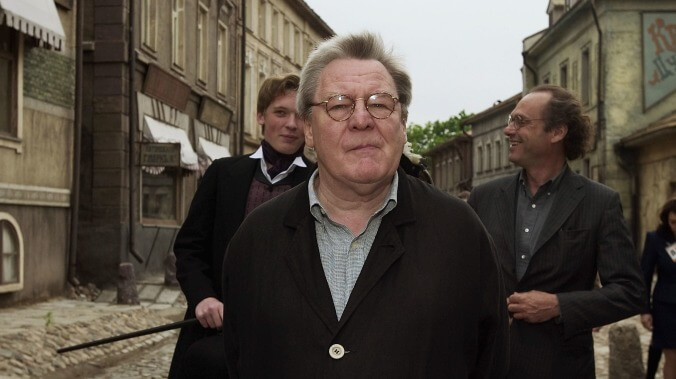R.I.P. Alan Parker, director of Fame and Mississippi Burning

According to the British Film Institute (via The Hollywood Reporter), director Alan Parker—whose movies landed 10 Golden Globes and 10 Academy Awards—has died “following a lengthy illness.” Parker’s filmmaking career covered a wide range of genres and aesthetics, with him directing musicals like Fame and Evita, real-life dramas like Mississippi Burning and Angela’s Ashes, and horror-thrillers like Angel Heart (which was hit with an X rating from the MPAA due to a sex scene featuring Mickey Rourke and Lisa Bonet that had to be trimmed by 10 seconds in order to get an R rating). Parker was 76.
Parker was born in London in 1944 to a working class family and had no aspirations of getting into the movie business. It wasn’t until he got a job at advertising agency CDP after graduating from school that he started tentatively stepping into the world of filmmaking. Parker got a job as a copywriter at the ad agency, which then naturally transitioned into actually making commercials at a time when CDP had a reputation for making very good ads. After meeting movie producer David Puttnam, Parker was inspired to write his first screenplay—Melody, which was directed by Waris Hussein.
He started his own production company, initially to make commercials, but he eventually just shifted fully into making feature films in order to be taken more seriously as a director. His feature debut was the period-set musical Bugsy Malone, which he followed-up with the Oliver Stone-written neo-noir Midnight Express, establishing a pattern of doing unexpected moves that he maintained throughout his career. He followed Midnight Express, for example, with the performing arts school drama Fame. Before the dramatic memoir adaptation Angela’s Ashes, he made the movie version of Evita with Madonna.
Parker was knighted in 2002 and received the British Film Institute’s Academy Fellowship (the organization’s highest honor) in 2013. Speaking on a BFI panel in 2015, Parker explained that he had left the movie business because the cost of making a film had risen so much that a director had to fight producers and studios over every decision. “Every day was a battle, every day it was difficult,” he explained, adding, “You duck under the ropes and you get into the ring and I’ve been punching out all my life to fight for the work.” His final feature was 2003's The Life David Gale.